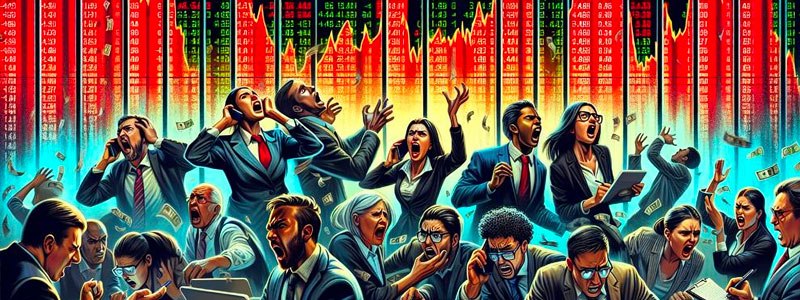
Insight Month of: July 2024 Over the past few weeks, international financial markets have experienced a significant crisis, characterized by extreme volatility and widespread losses that have affected nearly every major global stock market. This turbulent period originated mainly from a combination of global economic factors, including a sudden rise in interest rates in Japan, disappointing economic data from the United States, and the subsequent collapse of stock markets in Asia, Europe, and North America.
1. The triggers of the crisis
The first warning sign came from Japan, where the Bank of Japan unexpectedly decided to raise interest rates for the first time in nearly two decades. This increase, though modest, had an immediate and devastating impact on the Japanese market, with theNikkei 225 index suffering one of its worst days since 1987, plunging 12 percent in a single session. This move triggered a series of mass sales that quickly spread to other Asian markets and then to European and American markets. In parallel, in the United States, an employment report released Aug. 2 showed signs of economic weakness, stoking fears of a possible recession. The tech-heavy Nasdaq index lost nearly 9 percent in two days, while theS&P 500 fell 4 percent over the same period. These declines reminded markets of the difficulties of the COVID-19 pandemic, with the Cboe Volatility Index (VIX) spiking to its highest levels since 2020, signaling a high degree of fear among investors.
2. The reactions of global markets
The wave of selling was not limited to the United States and Japan. In Europe, major stock indexes posted substantial losses, with London’s FTSE 100 and Frankfurt’s DAX falling more than 3 percent each. The crisis also affected emerging markets, exacerbated by the strengthening of the yen and capital flight from these economies to assets considered safer. The technology and banking sectors were among the hardest hit. Leading companies such as Nvidia and Apple suffered heavy losses, in part due to concerns about slowing growth and disappointing expectations for new products, such as Nvidia’s delayed AI chip. In the banking sector, concerns about the U.S. economy led to a fall in the stocks of major banks, extending the sell-off to other areas of the financial sector.
3. What does the future hold for us ?
The financial market crisis has generated intense debate among economists and analysts about what to expect in the near future.
Some see the possibility of a more prolonged market correction, while others believe that markets could recover quickly once uncertainty dissipates.
Expectations are particularly high for the Federal Reserve’s next moves, with some economists suggesting that an emergency interest rate cut may be needed to stabilize markets and prevent a more severe recession. Recent weeks have highlighted the fragility of global markets in the face of sudden changes in economic policies and economic indicators. The strong interconnectedness of the world’s economies means that a crisis in one region can quickly spread to others, with effects that can be difficult to predict and control. It remains to be seen how markets will adapt to the new conditions and whether monetary authorities will be able to contain uncertainty and restore investor confidence.






